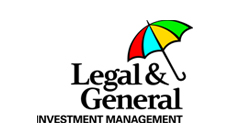
Chief Financial Officers (CFOs) can be somewhat forgiven for maintaining a defensive stance when it comes to forward planning and cost management, given the hectic macroeconomic climate and the multitude of risk factors at play. However, a disruptive market provides fertile ground for businesses to innovate, drive growth and steal a march on competitors.
This came through loud and clear at Criticaleye’s recent CFO Retreat, held in partnership with AlixPartners, Workday and Palo Alto Networks. CFOs and fellow C-suite and Board-level leaders gathered to discuss how to effectively balance risk and growth while also marrying short-term agility – particularly in relation to customer demands – with a clear long-term growth strategy.
Robert Hornby, Partner and Managing Director at AlixPartners, said: “CFOs, I think, have often taken on the role of responsible adult in the executive conversation about some of the harsh realities of what the organisation can really do. And that's a role that does need to be played. But equally, what we've found … is that some of these disruptions offer opportunities as well as threats, particularly in redefining the competitive landscape. CFOs need to be part of that conversation.”
The attitude around risk needs to change. Christopher Boerger, CFO at E.ON UK, said: “Creating that psychological safety is key so that people feel like they can talk about failures. I think if you create that environment, it helps [the] business area, as well as the finance function to actually get into that growth mindset and actually enjoy it and don't see failure as a threat.”
Another point of discussion centred on managing a quickly changing macro and customer landscape with a defined long-term growth strategy, and how to build organisational structure accordingly. Ryan Govender, CFO and Managing Director, Europe for Treatt – a listed manufacturer of flavour and fragrance ingredients for the beverage sector – is familiar with how quickly consumer tastes can shift. “We've got to focus more on innovation especially with changing consumer behaviours,” he said. “Yes, we've got to take long-term bets, but we've also got to be agile and quick on shorter-term applications for us to wow our customers.
“And then we've got to manage the teams in the right way to get the organisational design right, so that there's people focused on achieving the short to medium-term objectives, as well as those focused on longer-term growth, because ultimately, your business growth will plateau … if you don't focus and invest in longer-term innovation.”
The perpetual charge to quarterly targets, often at the expense of more long-term thinking, is something that Christopher has observed in his UK finance team at E.ON, which is traded on the Frankfurt Stock Exchange and a component on DAX – the stock index for the 40 largest German Plcs. “Usually in large corporates, we are focused very much on short-term targets and there's usually very little direct impact that you have on long-term incentives. Long-term targets are sometimes set at group level only and with that, not very linked to your specific day-to-day operations. So you need to, in the best case, include some long-term value targets for people, because then they're not just focused on hitting short-term EBITDA numbers, but are incentivised to invest in growth.”
At the leadership level, input from the CFO on the overall growth plan is becoming more vital, given the unique vantage point of the CFO in relation to the commercial dynamics of a business. Robert of AlixPartners stressed the importance of delegation within the finance function to allow the CFO space to focus on adding strategic value to the top table. “That kind of internal advisory role is ever more important, and the technical side of accounting is something that needs to be pushed further into the function itself, so that CFOs can play a really strategic role in a [joined-up] dialogue.”
It also falls on the non-executives to cultivate a growth mindset within the businesses they serve, in addition to more traditional Boardroom topics, such as risk, governance and oversight. Devyani Vaishampayan, a NED at Norman Broadbent and a Board Mentor with Criticaleye, said: “The Board's role is really to focus on the longer term, because we have the luxury of doing that. I think execs are under so much pressure that the day-to-day consumes them. Even if they want to, it's very difficult for them to find the space and the time to really think ahead. And that's where I think the Board can add real value.”
Neya Patel, Senior Account Executive and CFO Lead at Criticaleye, summarised the role of the CFO as a leading driver of business growth: “Ultimately, the CFO is responsible for ensuring financial stability in the short term and growth in the long term. While getting the balance correct between ‘the here and now’ and ‘the future’ remains a difficult task, the high-performing CFO will be able to turn risk into opportunity and play a key role in defining a strategic growth agenda.”
Jacob Ambrose Willson, Senior Editor, Criticaleye















 (002).png)









